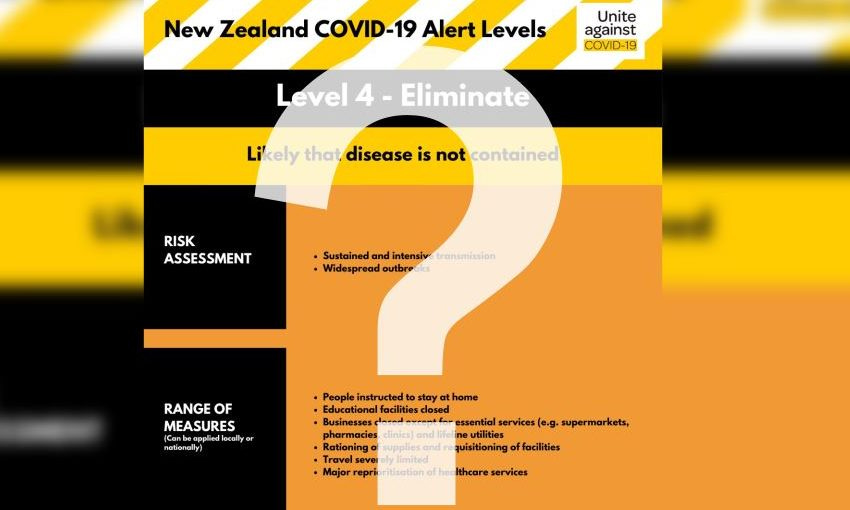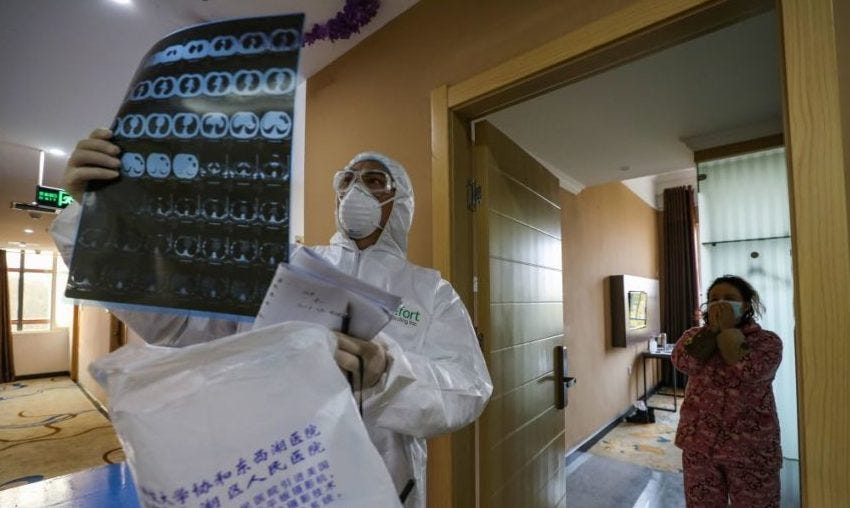

What does ‘level two’ mean – and why does it matter? OK, so the headline might be slightly redundant, but this piece by microbiologist Siouxsie Wiles remains as important as ever. She explains how the alert system works and why it helps to contain the spread of coronavirus. Illustrator Toby Morris’ excellent GIF on how individual discipline can have an outsize impact also really gets the point across in an easy to understand way (FYI: The GIF is creative commons, which means it’s free to be shared around)
What does the shutdown mean for schools, ECEs and universities? Tomorrow, all educational facilities will close in compliance with the new alert level issued by the government. Some students will be devastated, others will be overjoyed, but regardless, it’s going to be online distance learning for at least the next few weeks.

What are ‘essential services’ in Covid-19 lockdown New Zealand? Within 48 hours, New Zealand moves into alert level four to fight the spread of the coronavirus pandemic. The rules will apply to everyone from midnight Wednesday except for essential services. So what are they? Note that this list may evolve over time so make sure to check regularly over the next four weeks.
The government is giving new orders. What is the legal basis for them? With sweeping new restrictions on New Zealanders’ behaviour, what underpins these assertions of governmental power? What turns their “it’s best if we all do this” message into a “you must do this, or else!” message? The answer lies in a number of pieces of legislation, writes law professor Andrew Geddis.
“The Spinoff focuses on quality journalism – not just the topic of the day, but societal issues and contextual analysis of media.”
- Cathryn Bridges, Spinoff Member.

A reminder that Covid-19 still isn’t airborne. A widely reported study revealed that Covid-19 could be made to be airborne, but that doesn’t mean you’ll ever catch it that way, writes Siouxsie Wiles. “The virus is still spread via droplets,” she emphasises. “The researchers put the virus in a machine that would make it airborne and found that it could be airborne for a few hours. If they hadn’t found the virus could be airborne, I’d have fallen off my chair in surprise, given the job of a nebuliser is to make things airborne.”
An alarming number of NZ entrepreneurs are becoming amateur epidemiologists. In a time when accurate, expert advice is more important than ever, Hayden Donnell asks why New Zealand’s entrepreneur community has been so prominent in the media. “Obviously these entrepreneurs can interpret data. Their ideas aren’t radical. They may even be correct on certain points. But their opinions sometimes contradict official advice, and can muddy the waters for experts with more well-researched, nuanced information.”

How to make technology work for you when you’re working from home. “As tempting as it might be to work from your couch while wearing pyjamas, it’s important to set a routine. Have a shower, get dressed, eat breakfast, perhaps go for a walk around the block before starting work (I have to admit I’ve never done that last one – having a one minute commute to your work area is pretty great).”
So you’ve forgotten how to cook. To avoid being stuck with depressing wartime-rations-esque fare, you should – in a low-key manner that does not even slightly resemble panic buying – be a little prepared. Here’s some advice for what you might like to have to hand.




